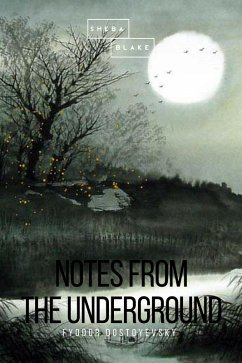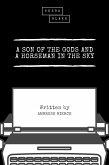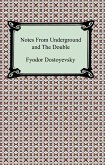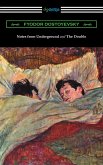Notes from the Underground is a novella by Fyodor Dostoyevsky. Notes is considered by many to be one of the first existentialist novels. It presents itself as an excerpt from the rambling memoirs of a bitter, isolated, unnamed narrator (generally referred to by critics as the Underground Man) who is a retired civil servant living in St. Petersburg. The first part of the story is told in monologue form, or the underground man's diary, and attacks emerging Western philosophy, especially Nikolay Chernyshevsky's What Is to Be Done?. The second part of the book is called "Apropos of the Wet Snow", and describes certain events that, it seems, are destroying and sometimes renewing the underground man, who acts as a first person, unreliable narrator and anti-hero. In the 1860s, Russia was beginning to absorb the ideas and culture of Western Europe at an accelerated pace, nurturing an unstable local climate. There was especially a growth in revolutionary activity accompanying a general restructuring of tsardom where liberal reforms, enacted by an unwieldy autocracy, only induced a greater sense of tension in both politics and civil society. Many of Russia's intellectuals were engaged in a debate with the Westernizers on one hand, and the Slavophiles on the other, concerned with favoring importation of Western reforms or promoting pan-Slavic traditions to address Russia's particular social reality. Even though in 1861, Tsar Alexander emancipated the serfs, Russia was still very much a post-medieval, traditional peasant society.
Dieser Download kann aus rechtlichen Gründen nur mit Rechnungsadresse in A, B, BG, CY, CZ, D, DK, EW, E, FIN, F, GR, H, IRL, I, LT, L, LR, M, NL, PL, P, R, S, SLO, SK ausgeliefert werden.









